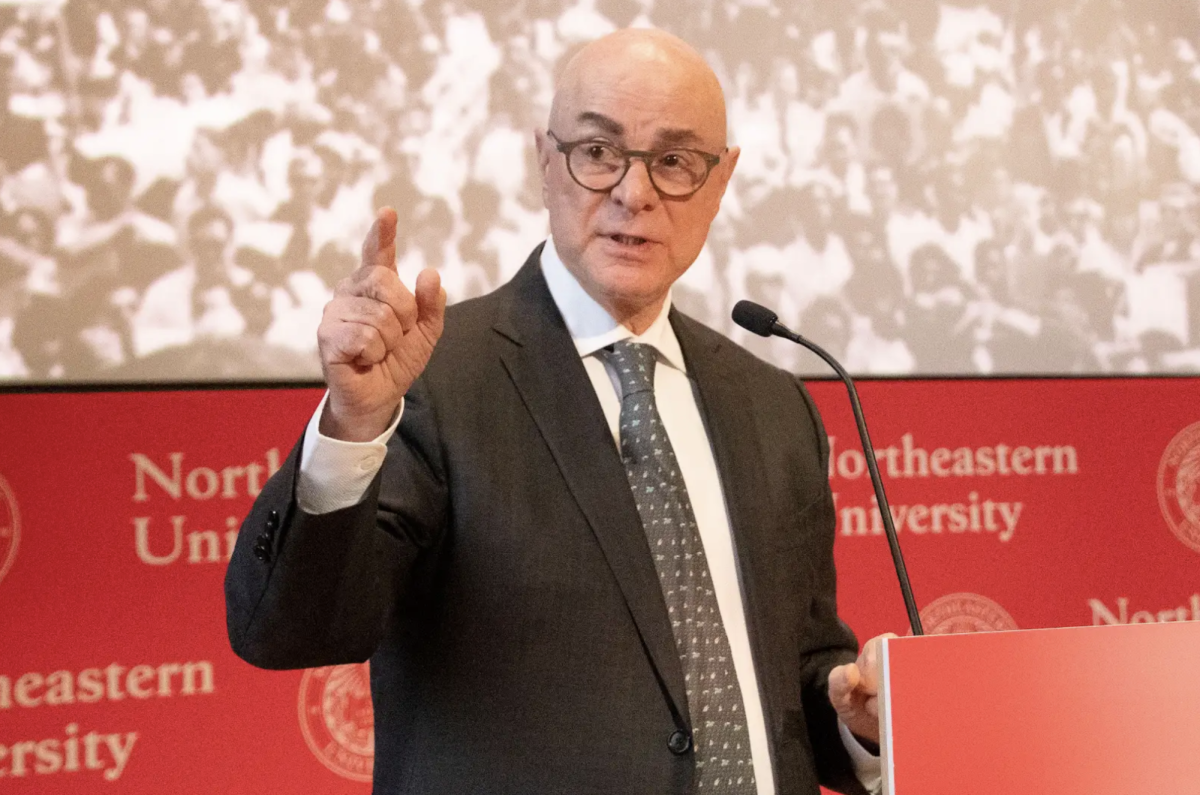Northeastern President Joseph E. Aoun sent an email to the Northeastern community Feb. 12 around 10 a.m. expressing a continued commitment to the university’s “core values” amid an outcry for communication from university leadership. The statement came weeks after President Donald Trump took office, marking the first direct communication from a named university leader to the student body regarding the new administration.
Days after Trump’s inauguration, faculty voiced their dissatisfaction with the university’s lack of immediate response at a Jan. 29 faculty senate meeting. Following the meeting, the university published an FAQ website entitled “Navigating a New Political Landscape,” which the university has updated at least six times since posting it Jan. 30, according to Internet Archives results.
The recent policies have targeted diversity, equity and inclusion, or DEI, initiatives, placed billions of dollars worth of federally-funded research in limbo and raised concerns about potential U.S. Immigration and Customs Enforcement, or ICE, activity on campus. In the Feb. 12 email, Aoun acknowledged the impacts of the policy changes without naming any directly and assured students that the university will continue pursuing its goals.
“I understand that the onslaught of daily news about changes in public policy — across broad areas of impact — has left many of us feeling anxious,” Aoun wrote. “Yet this is a time when our work has never been more important. This is not a time to retrench. Teaching continues in our classrooms. Experiential learning blossoms around the world. Our researchers pursue discoveries that improve lives by making us healthier, safer and better stewards of our planet.”
Aoun said the university has complied with Trump’s administration’s orders, such as its removal of all official DEI messaging and websites, but emphasized that the institution will continue to stay true to its “core values.”
“We may, at times, need to shift the methods by which we achieve our objectives,” Aoun wrote. “But our core values, the fabric of what makes Northeastern a vital institution, remain strong.”
These values were defined in the email as “[educating] students for lives of fulfillment and accomplishment, and [engaging] in research that improves the world.” Aoun insisted that this mission has always been the guiding force of the university and “does not change with the times.”
Aoun wrote that university leadership is taking direct action with organizations at the Capitol, but did not name any specific groups, as well as collaborating with other universities.
“We are working tirelessly with the relevant associations in Washington, and with our peer institutions, to safeguard these activities,” Aoun wrote,” likely referring to the G14 group of universities, which includes Boston College, Boston University and Tufts University.
Aoun also described how Northeastern’s various global campuses across three countries are a benefit to all, as the system “provides resilience” and praised the university’s approach to experiential learning and innovative research.
“Northeastern is well-positioned for the future,” Aoun wrote. “Our Global University System—with campuses in three countries—provides resilience. Demand for our experiential model of education is at an all-time high. And our use-inspired approach to research leads to powerful innovations and discoveries that uplift people’s lives.”
The email concluded with an appeal to students to trust the university’s commitment to these values and priorities despite restrictive federal policies, stating, “Let us harness the power and possibilities of this mission to shape a better future for all.”












